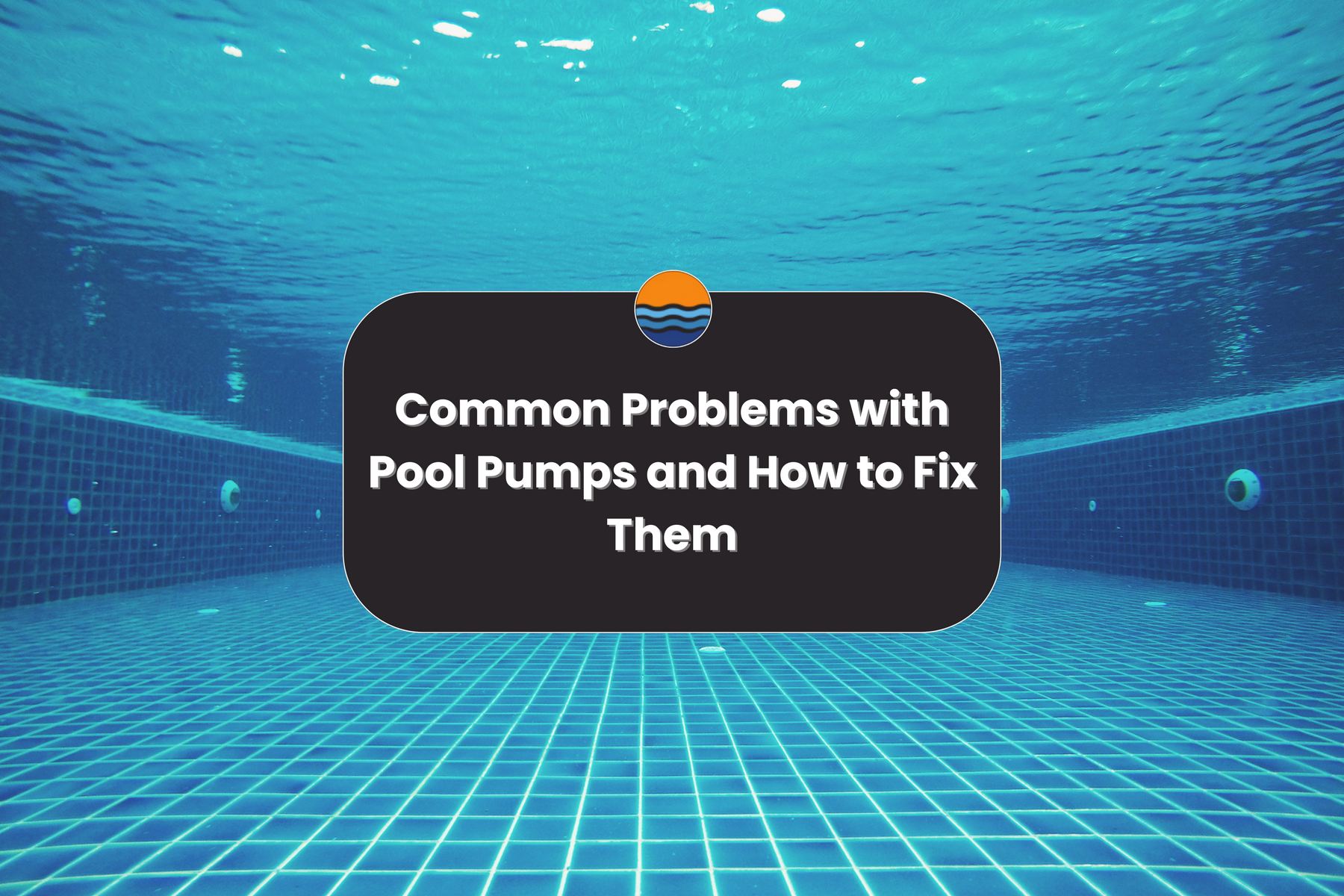
Common Problems with Pool Pumps and How to Fix Them
Common Pool Pump Malfunctions and Troubleshooting
If your pool pump is acting up - won’t start, sounds like it’s chewing gravel, or just can’t keep up - you’re not alone.
Most issues come from clogs, leaks, bad wiring, or worn parts. But don’t worry, these problems are usually fixable without calling in the cavalry.
Here, we'll learn quick, clear fixes and pro-level tips that’ll have your pool pump running smoothly again.
Pump Fails to Start or Stays Off
Your pool pump should be the first to wake up each day. If it's taking a break instead, you’ve got some detective work to do. Power issues and internal clogs are the usual suspects.
Electrical Issues (circuit breaker, wiring, capacitor)
Start at the breaker box. A tripped breaker is a common reason your pump won’t start. If that’s not it, check the wiring for rust or damage.
Still nothing? The capacitor might be toast. It helps the motor kick on. When it fails, the pump might hum quietly or do nothing at all. If you're not used to working with electrical parts, it's smart to get a pro to replace it.
Clogs and Blockages (impeller, lines)
If your pump powers up but shuts down soon after, something could be stuck inside. Leaves, twigs, or even small toys can block the impeller or suction lines.
Turn off the pump, remove the basket, and look inside. If it’s all clear, you may need to open the housing to check the impeller. Keep a flashlight handy - those blockages like to hide.
Noisy Pump Operation
Your pool pump shouldn’t sound like it’s blending ice. Loud grinding or screeching usually means something’s wrong inside or air is sneaking into the system.
Bearing Wear and Internal Friction
A loud, high-pitched whine is often a sign of bad bearings. Over time, they wear down, especially in older pumps.
You can try to lubricate them, but that’s only a temporary fix. If the noise keeps getting worse, replacing the bearings - or the motor entirely - is your best move.
Air Leaks and Cavitation
Hear slurping or rattling? That’s likely cavitation. It happens when air bubbles form and collapse inside the pump.
It can damage internal parts fast. Look for loose fittings, cracked seals, or low water levels. Even something as simple as a poorly sealed pump lid can cause this.
Water Flow and Pressure Problems
If the water in your pool is barely moving, the pump is either working too hard or not at all. Low flow means something is blocking or leaking in the system.
Leaks and Seal Issues
Water puddling under the pump is a red flag. It usually means the shaft seal is leaking.
A worn seal can cause the pump to lose its prime and run dry. That leads to overheating and even more damage. Check O-rings and gaskets and replace any that look cracked or flattened.
Clogged Filters and Baskets
This is pool care 101, but it’s easy to forget. A clogged skimmer basket or dirty filter can kill your water flow.
Check them regularly - weekly if possible. Clean or replace as needed. If you use a cartridge filter, hose it down or swap it out when pressure builds up.
Air in the System
Air bubbles coming out of your return jets? That’s not normal. Somewhere, air is leaking into your system.
Most likely spots are the pump lid, pipe joints, or suction-side valves. Make sure everything is tight and the pump lid O-ring is clean and lubed. Air leaks can be sneaky but fixing them keeps your pump running strong.
Understanding Pool Pump Failure and Safety
Before your pump gives out completely, there are warning signs. Knowing what causes failures helps you keep things running longer - and avoid bigger issues down the line.
Reasons Why Pool Pumps Fail Prematurely
No pump lasts forever, but some quit a lot sooner than they should. Here’s why that happens.
Environmental Factors and Wear and Tear
Heat, rain, and pool chemicals all wear down your equipment over time. If your pump sits in direct sunlight or gets splashed often, the damage adds up.
Rubber seals crack. Metal parts rust. That’s why regular cleaning and a good pump cover can make a big difference.
Improper Sizing and Installation
A pump that’s too strong for your system doesn’t help - it hurts. It creates excess pressure that stresses pipes and filters.
On the flip side, a pump that’s too small will constantly struggle to keep up. Either way, the motor works harder than it should. Always match your pump to your pool’s size and plumbing layout.
Safety Concerns: Overheating and Fire Risks
Pool pumps run hot - that’s normal. But too hot? That’s a safety hazard.
Overheating usually happens when a pump runs dry or airflow around the motor is blocked. In rare cases, the motor could catch fire. If your pump smells burnt or shuts off mid-cycle, turn it off right away.
Make sure nothing’s blocking the vents and that it’s getting enough water. Never run your pump without water in the system.
By catching issues early, you’ll save money, avoid downtime, and enjoy a cleaner, safer pool. Take care of your pump and it’ll take care of your pool - without the drama.
Related reading:



Leave a comment